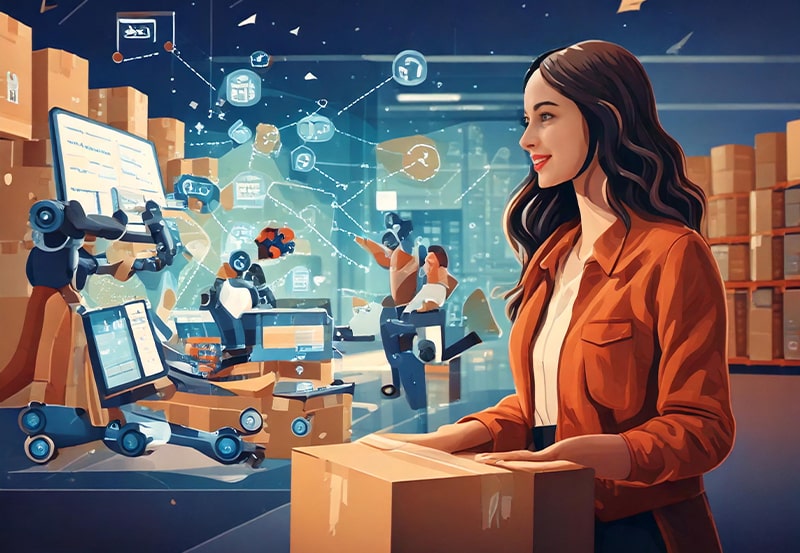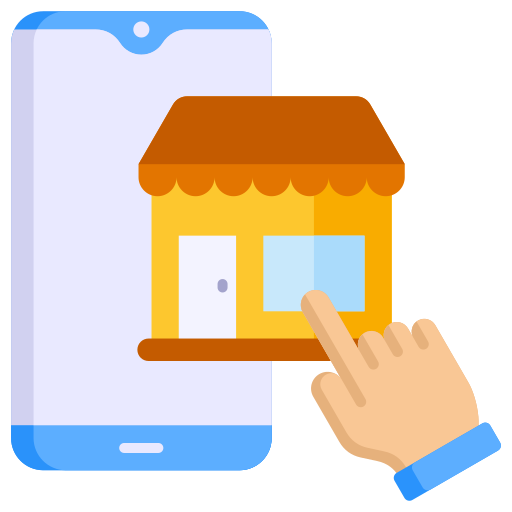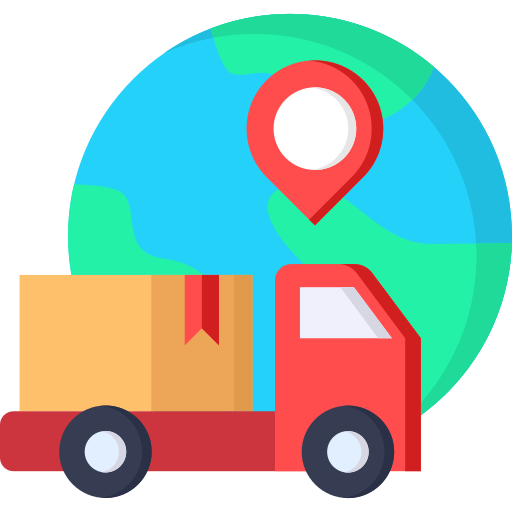The E-commerce and Retail sector has changed how businesses work and people shop, making it one of the most exciting industries today. Startups are driving this change by bringing new ideas to connect with customers, improve processes, and deliver great experiences.
From online stores to smarter delivery systems, startups have many chances to grow and succeed. By using advanced tools like AI and robotics, they are not just meeting customer needs but often going beyond expectations.
For startups entering this fast-paced industry, using the right strategies and tools is key to standing out. Expanding globally can be challenging, but Launchroad is here to help. As a trusted startup visa consultant, we guide founders through the startup visa consultation process, making it easier to reach new markets and achieve success.
Table of Contents
 Key Areas in E-commerce and Retail
Key Areas in E-commerce and Retail
 E-commerce Platforms
E-commerce Platforms
E-commerce platforms, like online marketplaces and retail stores, allow businesses to connect with customers worldwide, breaking down geographical barriers and opening up new markets. Startups play a crucial role in this space by developing platforms that are:
- User-friendly: Simplified shopping experiences that keep customers coming back.
- Scalable: Flexible systems that grow as businesses expand.
- Customer-focused: Features like personalized recommendations and secure payment options to enhance satisfaction.
Successful examples, such as Shopify and Etsy, show how startups can empower businesses to thrive online. By offering easy-to-use and adaptable tools, these platforms demonstrate the power of innovation in the e-commerce space.
📌 Must Read: Health and Wellness Sector in Startups 👈
Do You Have a Destination In Mind
Launchroad can help you find the perfect country for your startup. Schedule a free demo today.
DTC (Direct-to-Consumer)
The Direct-to-Consumer (DTC) approach eliminates traditional middlemen like wholesalers and retailers, allowing brands to sell directly to their customers. This model offers significant advantages for startups:
- Closer Customer Relationships: Without intermediaries, DTC brands can connect with their customers directly, understanding their preferences and needs more effectively.
- Stronger Brand Control: Startups have full control over how they present their brand, from packaging to messaging, ensuring a consistent and impactful experience.
- Flexible Pricing Strategies: By cutting out additional layers in the supply chain, startups can offer competitive pricing while maintaining healthy profit margins.
Creating Personalized Experiences
DTC startups excel at creating unique and personalized customer experiences. From customized product recommendations to engaging social media campaigns, these businesses use data and creativity to build lasting connections with their audiences. Successful examples include brands like Warby Parker and Glossier, which have built loyal communities around their products.
📌 Must Read: All About Education Technology (EdTech) Sector in Startups 👈
 Retail Tech and POS
Retail Tech and POS
The e-commerce and retail sectors are goldmines for innovation and growth for startups. By harnessing new technologies and modern business models, startups transform how businesses operate and connect with their customers. Retail tech, particularly point-of-sale (POS) systems, is among the key areas driving change.
Revolutionizing In-Store Operations with Retail Tech
Emerging technologies like Artificial Intelligence (AI), the Internet of Things (IoT), and cloud computing are redefining how physical retail stores operate. Modern POS systems are at the heart of this transformation, providing startups with powerful tools to:
- Streamline Inventory Management: POS systems with AI capabilities can predict stock needs, track sales trends, and automate reordering, ensuring shelves are always stocked with what customers want.
- Enhance Customer Engagement: IoT-powered devices and cloud-based POS systems create seamless, personalized shopping experiences. These tools help businesses build strong customer relationships, from loyalty programs to tailored product suggestions.
- Improve Operational Efficiency: Retail tech solutions minimize manual tasks, reduce errors, and speed up checkout processes, allowing businesses to focus on delivering better customer service.
📌 Must Read: How Fintech Startups Are Changing the World? 👈
 Logistics and Delivery Tech
Logistics and Delivery Tech
For any e-commerce or retail business, an efficient supply chain is key to meeting customer expectations and maintaining a competitive edge. From sourcing products to delivering them on time, the entire process needs to run smoothly. However, the final step—last-mile delivery—often presents the biggest challenge. Startups that can optimize this process have a significant advantage.
Efficient logistics ensures that products are delivered on time, reduces costs, and increases customer satisfaction. This is where innovative technologies like drones, robotics, and AI come into play.
How Startups Are Leveraging Cutting-Edge Technologies
Startups are using drones, robotics, and AI to solve key challenges in logistics:
- Drones: Drones are revolutionizing last-mile delivery, offering faster and more cost-effective solutions, especially in urban areas. They help startups reduce delivery times and overcome traffic congestion.
- Robotics: Autonomous robots are improving warehouse operations, making inventory management and order fulfillment more efficient. Startups are using robots to pick, pack, and ship products, reducing human error and speeding up the process.
- AI: Artificial Intelligence is helping startups optimize their supply chains by predicting demand, analyzing customer behavior, and improving route planning. AI-powered systems can forecast inventory needs and recommend the best delivery methods based on real-time data.
The Future of Logistics Innovation
The future of logistics in the e-commerce and retail sector is filled with possibilities. With continuous advancements in AI, robotics, and drones, startups can expect even more efficient, sustainable, and cost-effective solutions. As consumers demand faster, more reliable delivery, startups that embrace these innovations will be well-positioned to lead the way.
📌 Must Read: All About Technology Sector in Startups 👈
 Conclusion
Conclusion
The E-commerce and Retail sector is growing fast and offers great opportunities for startups. From innovative online platforms and the rise of the DTC (Direct-to-Consumer) model to new retail technologies and smarter logistics, startups are changing how businesses operate and connect with customers.
As we’ve seen, startups can use easy-to-navigate platforms, AI-driven tech, and advanced logistics to stay ahead of the competition and grow quickly. By focusing on innovation, improving customer experience, and streamlining operations, startups can expand into global markets and achieve long-term success.
Role of Launchroad in The Seccess of Your Startup Visa

LaunchRoad is your trusted partner for starting a business abroad. We guide you in choosing the right country, understanding visa requirements, and getting your startup off the ground. As an experienced startup visa consultant, we offer expert startup visa consultation to help you navigate the complexities of international expansion. Our team provides the support, mentorship, and resources you need to succeed in the global market.

 Key Areas in E-commerce and Retail
Key Areas in E-commerce and Retail E-commerce Platforms
E-commerce Platforms Retail Tech and POS
Retail Tech and POS Logistics and Delivery Tech
Logistics and Delivery Tech Conclusion
Conclusion









Leave a Reply